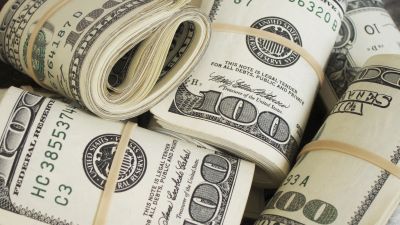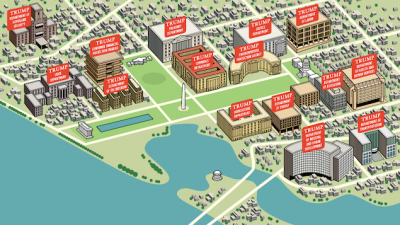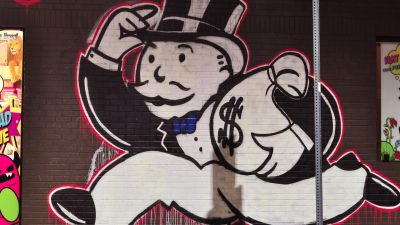Listen to this edition of Scheer Intelligence with Nomi Prins and Robert Scheer
This post and podcast first appeared on Scheerpost
It’s been over a decade since the 2008 banking meltdown, and yet many Americans are still living with the consequences of the financial crisis and the Obama administration’s decision to bailout banks over people with their own tax money. As Covid-19 spread around the world, and the economic impacts of the public health crisis began to take shape, the U.S. government once again faced a similar choice regarding bailouts. This time, Congress passed the CARES Act, which, on paper, aimed to help working people and small business owners most affected by both the virus and the lockdown measures used to combat the crisis, seemingly marking a shift from the 2008 crisis handling. Yet, as banking expert Nomi Prins points out to “Scheer Intelligence” host Robert Scheer in the latest installment of his podcast, banks and large companies are once more taking advantage of a crisis to swindle the public.
“Now that we’re in an even greater economic crisis [than the 2008 meltdown] as a result of this pandemic around a virus, the bailouts are much, much larger,” begins Scheer, “but there is concern that a disproportionate amount of this money is going to people who are indifferent to the problems of ordinary Americans, and they’re going to be made whole.
“Is this going to be another one of those things of lifeboats for the big bankers and the powerful people, and forget everyone else?” the “Scheer Intelligence” host asks Prins.
“It is, is the short answer,” responds Prins. “It’s a little bit more complicated this time around.”
The former Goldman Sachs executive and author of “Collusion: How the central bankers rigged the world” goes on to explain how banks stand to gain from distributing the two installments of $350 billion in stimulus money allotted in two federal bills for small businesses.
“How it goes down is not necessarily that real people running small businesses with a handful of employees or even, you know, multiple handfuls of employees, necessarily get all $700 billion,” explains Prins. “The reason for that is that the big banks [realized] that they could get fees for sort of being the middleman between this money that was set aside for small-business loans through the Small Business Association. […] Problem number two was if [small business owners] were banking with a smaller bank, that smaller bank–say a community bank, a local bank–didn’t necessarily get the same allocation of funds as the big banks. So they simply had less to give under the same program. ”
Prins goes on to give a detailed example using massive banks such as Bank of America and Wells Fargo, where many Americans have accounts, to illustrate how this process has benefited banks and big businesses instead of small businesses, which the banking expert calls “the backbone of our economy.” As the conversation develops, Scheer brings up a question likely on many people’s minds: Where is all this “funny money” coming from? When Prins explains that the Federal Reserve has essentially printed the money, the “Scheer Intelligence” host makes a powerful comparison.
“So why can’t the Fed just lend us the money?” Scheer laughs. “It’s incredible–if you didn’t call them banks, and you called them the Mafia, it would sound like a real scam, right? They get money for nothing, and then they turn around and charge you what, 13, 15, 18, even 25%.”
Although much of their discussion highlights the corrupt nature of both political parties, and how Democrats and Republicans alike have played a role during different administrations from Clinton’s through to Trump’s in transferring public money to the pockets of the 1 percent, Prins and Scheer do find a slimmer of hope to be found in the midst of the coronavirus pandemic.
“The reality is that the ideas of being both physically and economically healthy are having a sort of fusion moment,” concludes Prins. “And the idea of a virus that does not select people based on their socioeconomic stature, or who they vote for, and that is something that can attack and is prevalent throughout the world, is something that has shown us that people being able to protect themselves from a health perspective means that society and the population as a whole can be healthier, and can be better protected.
“I do think there’s an economic benefit as well which has been recognized,” Prins adds, “that people at the foundation of the economy actually are a necessity of the whole economy. So even though, again, this time around there’s been some disproportionate sort of subsidizing here and there, there has at least been the realization that you can’t just ignore an entire swath of individuals from either a health or an economic standpoint. And so that joint realization [can] be a pivot point.”
Credits: Host: Robert Scheer, Producer: Joshua Scheer, Introduction: Natasha Hakimi Zapata
This post and podcast first appeared on Scheerpost





